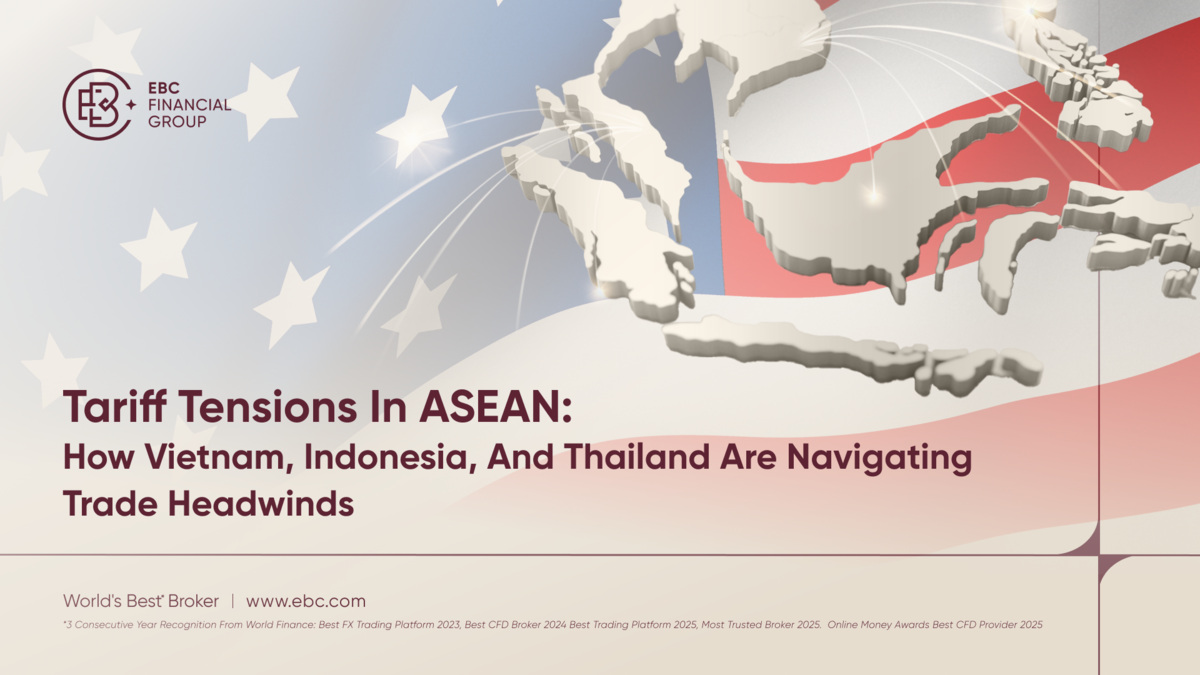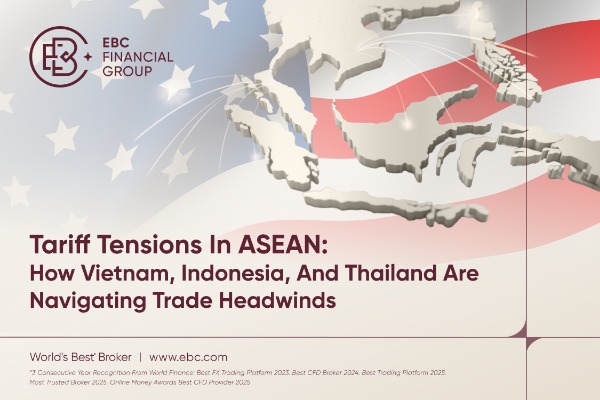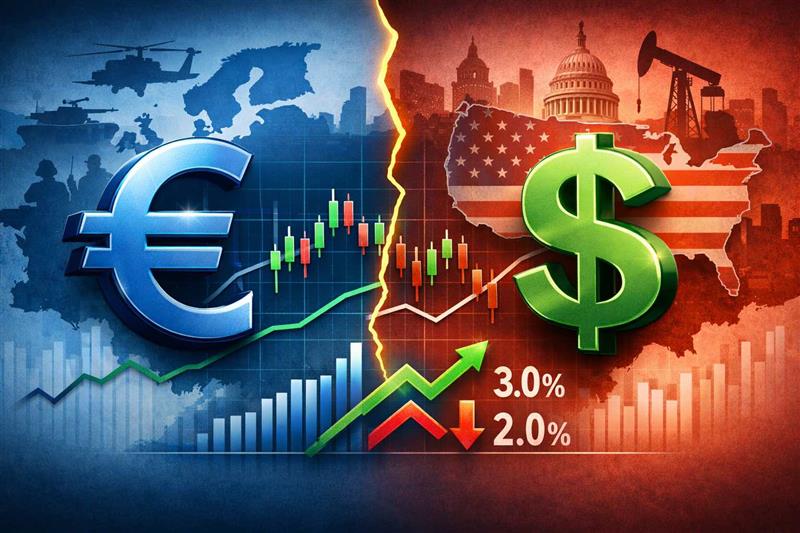As the U.S. intensifies its protectionist stance under President Trump's
administration, key Southeast Asian economies are scrambling to adapt. We
analyse how Vietnam, Indonesia, and Thailand are navigating this unpredictable
landscape through accelerated trade diplomacy, sectoral policy support, and
currency market strategies.
"Southeast Asia isn't just reacting—it's repositioning," said David Barrett,
CEO of EBC Financial Group (UK) Ltd. "From Vietnam's reform drive to Indonesia's
pre-emptive diplomacy, the region is leveraging trade friction as a catalyst for
economic recalibration. For investors and traders alike, this is not a story of
decoupling—it's a story of divergence."

Southeast Asia's Response: From Rapid Deals to Realignment
Vietnam, already one of Asia's fastest-growing export powerhouses, is
accelerating efforts to finalise a bilateral trade agreement with the U.S. as
tariffs loom over critical sectors like textiles, electronics, and furniture.
According to our analysts, the new U.S. tariff regime imposes duties of up to
20% on select Vietnamese exports—including a 10% base rate on electronics and
15% on wood and furniture—down from earlier proposals as high as 46%. In
response, the Vietnamese government is deploying targeted support for affected
industries and pushing structural reforms to maintain investor confidence.
"Vietnam's ability to pivot quickly and preserve market access speaks to its
growing strategic importance in global supply chains," says Barrett. Meanwhile,
optimism over trade deal prospects and reform momentum has triggered a rally in
Vietnam's stock market, as reported by Vietnam Investment Review.
Indonesia has also entered high-stakes negotiations, putting forward a USD34
billion trade package to Washington as a proactive buffer against potential
penalties. We highlight that the deal aims to safeguard sectors like palm oil,
rubber, and apparel—industries crucial to Indonesia's export economy. As part of
the agreement, Jakarta successfully negotiated a tariff reduction from 32% to
19% on key product lines, offering much-needed relief to domestic producers and
reinforcing Indonesia's competitiveness in the region.
Thailand, meanwhile, remains subject to the tariffs first announced in April.
We note that Bangkok is currently working to finalise a separate agreement with
the U.S., with a strong emphasis on protecting its automotive and electronics
sectors. According to Bloomberg, Thailand is reportedly focused on lowering
existing 36% tariffs, as delays risk undermining investor sentiment and causing
lost export orders.
Under Pressure: Southeast Asia's Middle Power Dilemma
Vietnam, Indonesia, and Thailand now face mounting pressure as global tariff
tensions escalate. Vietnam is fast-tracking negotiations with Washington and
reinforcing policy support for vulnerable sectors like footwear and garments.
Indonesia's USD34 billion trade offer is seen as a strategic shield, reflecting
concerns that prolonged uncertainty could strain investor confidence and disrupt
supply chains. Thailand is also moving quickly to lock in tariff relief for its
most exposed sectors, particularly autos and electronics.
While Malaysia and Singapore remain less directly impacted by broad-based
U.S. tariffs, we warn of spillover effects. Singapore's export-reliant economy
may feel the pinch from slowing regional trade, while Malaysia—deeply embedded
in upstream supply chains—risks indirect disruption if tariffs hit components or
raw materials. "The ripple effects of U.S. tariff action are already being felt
across ASEAN," says Barrett. "Whether it's direct exposure or indirect fallout,
the urgency to adapt is very real."
FX Moves Reflect Divergence
Foreign exchange markets across ASEAN have begun pricing in these tensions.
The Vietnamese dong and Thai baht have shown signs of short-term resilience,
aided by U.S. optimism and central bank readiness to intervene if needed.
Indonesia's rupiah, however, remains under pressure as Bank Indonesia faces a
delicate balancing act—maintaining competitiveness while protecting against
capital outflows. Meanwhile, the Singapore dollar has weakened slightly,
reflecting its sensitivity to global demand cycles.
These divergent currency paths are not just market noise—they mirror how each
economy is positioned to weather the tariff storm. Countries actively engaging
with Washington may gain short-term favour, while those perceived as slower to
act could see their assets repriced accordingly.
What Traders Need to Know
For traders, this fragmented tariff landscape brings both risks and
opportunities. Currency volatility is likely to remain elevated, particularly in
frontier and emerging markets like Indonesia and Vietnam. As bilateral deals
shift the competitive playing field, sector-specific equities—particularly in
textiles, autos, and tech hardware—may see revaluations.
Bond markets, too, are responding. Yields on Indonesian and Thai government
debt have started to tick higher, pricing in trade uncertainty and potential
policy adjustments. We advise traders to monitor both FX positioning and
regional policy signals closely, especially as central banks may act in
uncoordinated and country-specific ways in response to Washington's next
moves.
Disclaimer: This article reflects the observations of EBC Financial Group and
all its global entities. It is not financial or investment advice. Trading in
commodities and foreign exchange (FX) involves significant risk of loss,
potentially exceeding your initial investment. Consult a qualified financial
adviser before making any trading or investment decisions, as EBC Financial
Group and its entities are not liable for any damages arising from reliance on
this information.


























